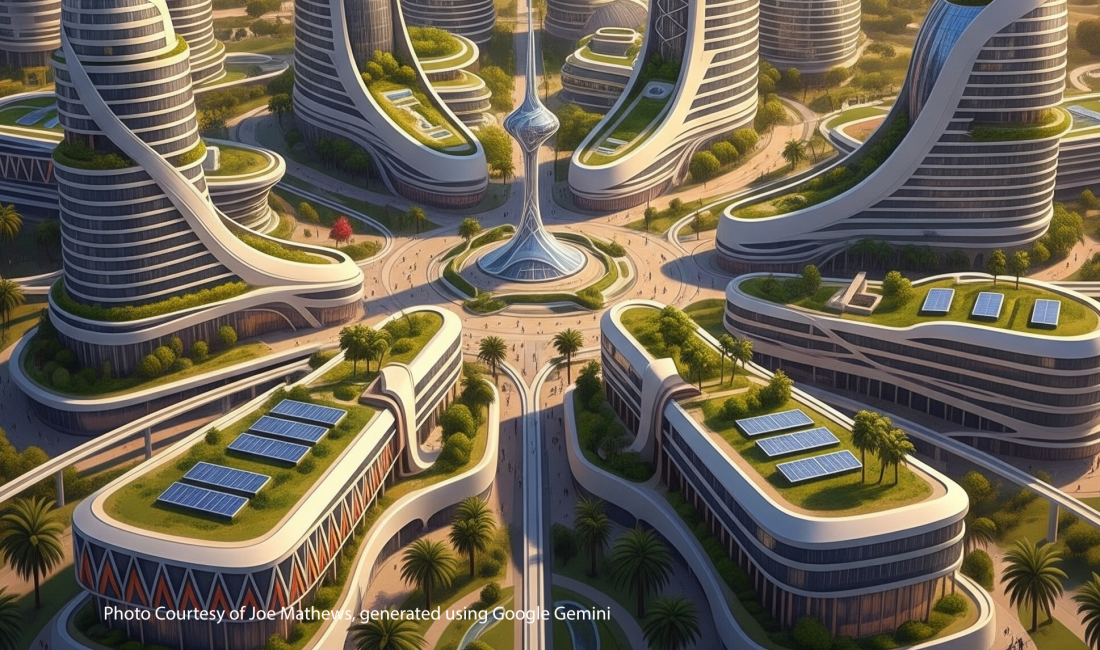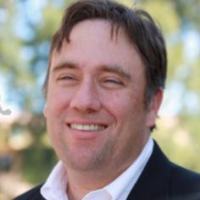From Borneo to Cancun, Plans for Future Cities Omit Local Democracy and Self-Rule
This column is co-published with Zócalo Public Square.
In 2020, the rapper Akon secured 136 acres of land to build his own eponymous city on the site of the coastal village of Mbodiène, not far from where he grew up in Senegal.
Akon envisioned Akon City as a real-life Wakanda, the Afrofuturist utopia from the film Black Panther. But his extensive plans—100 percent solar power, Africa’s most advanced hospital, a high-tech university, an economy running on Akon’s personal cryptocurrency—omitted one crucial detail:
How Akon City would be governed.
Akon’s failure to plan for governance of his own city created questions about the project that he never could answer. Last month, the Senegalese government confirmed the project no longer exists.
Akon’s combination of ambition, and disinterest in governance, is remarkably common. With the world seeming stuck, a growing number of celebrities, oligarchs and governments are seeking to create futuristic, paradigm-shifting new cities. From the seaside cliffs of Borneo to the deserts of Saudi Arabia to the swampy delta of Northern California, rich and famous and powerful are proposing visionary metropoli that advance new aesthetics, pioneer technologies, or surpass previous milestones in sustainability or energy efficiency.
But for all their awesome grandeur, these proposals typically fall down for the same reason. They offer no new ideas—and often no details at all—about how their dream cities will be governed.
Why this void? Some urban creators are authoritarians, who offer no vision of government because they believe they can dictate to the future residents of their grand cities. Others see governance questions as difficult and divisive, and thus avoid them in the service of completing projects.
But the bigger problem is ignorance.
In failing to include governance in their future visions, the world’s rulers demonstrate that the planet Earth is suffering from a lack of imagination when it comes to local democracy and government.
This fundamental failure to think about governance is perhaps most evident in the project known as California Forever. An enterprise called California Forever, backed by venture capitalists who pride themselves on world-changing ideas—including LinkedIn’s Reid Hoffman, Netscape co-founder Marc Andreessen and Emerson Collective’s Laurene Powell Jobs—secretly purchased land in Solano County, on the eastern outskirts of the Bay Area.
When the purchases became public, Jan Sramek, the founder and CEO of California Forever, promised a 21st-century city (population 400,000) to embody the California Dream—and prove that great things can be built here. His plans include North America’s largest site for advanced manufacturing, job centers integrated with plentiful housing, and the most walkable and sustainable neighborhoods possible.
What Sramek has yet to offer is any clear idea on how this city would be governed.
In response to questions, California Forever has said they needed to get the city built first. But that failure to figure out governance has already stalled the project. At first, they sought voter approval for an unincorporated community, only to drop that idea when it appeared a ballot initiative might lose[SR1] . More recently, they’ve been exploring having California Forever combine with existing cities.
It’s a similar trajectory to Bill Gates’ cutting-edge tech city of Belmont, proposed for Arizona in 2017, and stalled since. Gates’ plans are heavy on tech innovations to reduce traffic, and light on any governance plans that go beyond the billionaire’s personal beliefs. (Belmont also has never found a reliable source of water)
To be fair, California Forever at least is operating in the mostly democratic realm of local government. Other technology visionaries reject democratic governance as they pursue their own utopias. Among them is Larry Ellison, the Oracle co-founder who purchased most of the Hawaiʻian island of Lanai, to turn it into an even more exclusive place.
Then there’s Peter Thiel —a Trump supporter who declared, “I no longer believe that freedom and democracy are compatible”—and provided the seed funding for the Seasteading Institute, which supports the building of cities that float in international waters, beyond democratic accountability. Thiel also backed the corporate island-state of Próspera, which the Honduran government wants to shut down because it won’t follow the country’s laws.
One of Próspera’s investors was San Francisco venture capital firm Pronomos, which invests in “prosperous cities that grow to empower entire nations". Pronomos' most high-profile project, the network state Praxis, has registered more than 2,200 citizens but has yet to find a territorial home (it’s looking in the Mediterranean, Greenland, and Ukraine).
Perhaps that’s because its plans—which don’t describe governance but declare a commitment to “vitality” and opposition to “mediocrity”—have been called fascist by critics.
The narrator of a promotional video for Praxis offers this rebuttal: “Contemporary media proclaims that having any ideals is fascist. Everything of conviction is fascist.”
To be fair, it isn’t just tech bros who foreswear democratic governments for their dream cities. National governments have shown the same distaste for democracy in new metropolitan developments.
Indonesia is a decentralized democracy with strong local governments, but its increasingly autocratic national government has decided that the country’s new capital, now under construction on the east coast of Borneo, will have no local government at all. It will be administered by an agency of the national government, under rules as yet undrafted. Meanwhile, construction is dogged by delays and scandals.
China’s government is developing a series of future cities—most notably, Chengdu Future Science and Technology City—that are supposed to demonstrate new ways of living, but don’t include any new methods of governance. Mexico and Malaysia have proposed new “forest cities” to demonstrate a more ecological future, but the plans skip the governance details.
Saudi Arabia has said not a word about the governance structure of “The Line,” a planned city in the northwest region of NEOM. Renderings of “The Line” are mesmerizing—two skyscrapers that stretch 100 miles across the desert, with space to house 9 million people—but they do not include any sign of local autonomy.
The best bet is that The Line will be governed by a corporation owned by the Saudi ruling family.
Not all visions of future cities exclude governance. Plans for the former Wal-Mart executive Marc Lore’s city of Telosa call for transparency in all government decision-making, participatory democracy, and an inclusive economic system in which residents would share in the city’s wealth.
One caution: you would have to survive an application process to become a resident.
At smaller scales, a few new places have experimented with new ideas in liberal democracy. One pop-up city, Zuzalu, which appeared on Montenegro’s coast for a few months, had its residents create laws to encourage longer lifespans. Mexico City’s award-winning “utopias”—experimental neighborhood developments in the borough of Iztapalapa—are models of shared participatory governance, with authority divided among the mayor’s office, civil society groups, and local residents.
Democratic eco-villages, where small groups of people create democratic and environmental alternatives to civilization, are also on the rise. In Schloss Tempelhof in Germany (which I’ve visited), all 150 residents make decisions and share the work.
But many visionary cities, without clear governance, will never be anything more than dreams. Indeed, in Switzerland, the packaging mogul Daniel Model let Avalon, the libertarian town-republic he declared within the rural village of Müllheim, remain imaginary.
Akon’s city in Senegal is not a total fiction. But the rap star managed to build only a welcome center and a basketball court, which is why the Senegalese government reclaimed most of Akon City’s land. On a small remaining patch, Akon may build a resort.
Perhaps someone can hold a giant conference there to think up the new models of city governance that elude today’s would-be urban visionaries.




